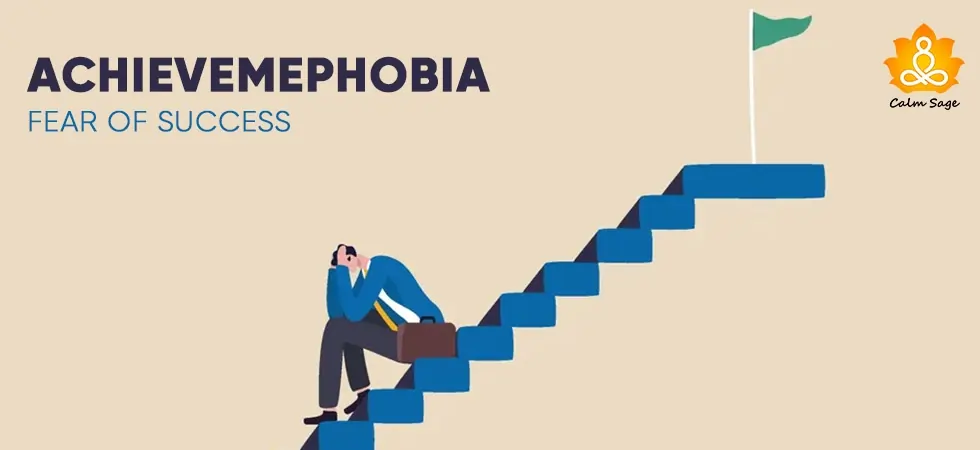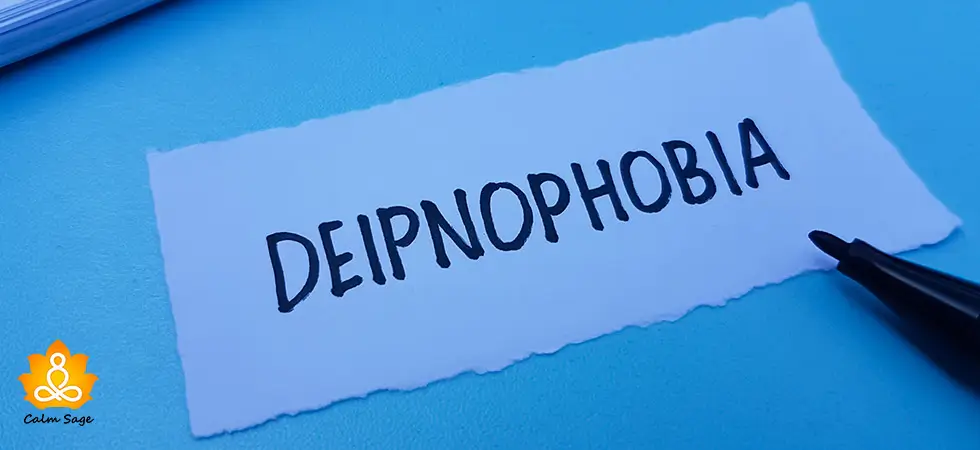Scopophobia : Fear Of Being Watched Or Stared At

Being watched or being stared at is not something anyone enjoys. It’s normal to feel slight discomfort and anxiety when you are being stared at (especially when you’re making a speech or presentation), however, when this discomfort becomes extreme that’s when it can become a specific phobia – Scopophobia.
Scopophobia or the fear of being stared at is a specific phobia that can cause severe interference in your daily life. For example, when someone is struggling with scopophobia, they are less likely to stay focused at work, find it hard to run errands, and even avoid appointments or activities with their loved ones.
Can you relate to this experience? If yes, then the severe anxiety you feel when you feel you’re being stared at can be a phobia. Fortunately, like other specific phobias, scopophobia can be treated and you can learn to cope with your fear to enjoy time with your loved ones.
In this blog, we’ll explore what scopophobia is, its symptoms, its causes, treatment options available, and how you can cope with scopophobia on your own.
What Is Scopophobia?
Scopophobia is the fear of being looked at or watched. When you have a phobia of being watched, you feel highly self-conscious and go out of your way to avoid social situations. Some people may also avoid eye contact with others. Just like Social Phobia.
While scopophobia isn’t officially recognized as a phobia in the DSM-5, it can be categorized as a diagnostic criterion for Social Anxiety Disorder (SAD) and other specific social phobias.
The Symptoms Of Scopophobia
Scopophobia can mask social anxiety, however, certain symptoms can help differentiate between the two. Scopophobia symptoms can include:
- Feeling extreme discomfort when others look at you
- Worrying about blushing too much
- Wondering if others are watching you
- Feeling anxious or stressed because you made eye contact with others
Keep in mind that scopophobia can also trigger anxiety symptoms such as:
- Rapid heartbeat
- Shaking and trembling
- Excessive sweating
- Flushed skin
- Panic
- Trouble focusing
- Restlessness
- Excessive worrying
What Causes Scopophobia?
The fear of being watched or stared at can be an aspect of social phobia. If you’re socially anxious then you must be aware of how this disorder can impact your social interactions. If you are living with a social phobia, then there’s a risk of you experiencing scopophobia.
Remember, living with SAD means worrying too much about others looking at you or watching you. Others who have been diagnosed with a disorder that can attract attention such as Tourette or who are frequent victims of bullying or are socially awkward can also develop scopophobia.
Another factor that causes scopophobia can be genetic. If there’s a close family member with an anxiety disorder, then this can also increase the risk of you developing a social anxiety disorder or scopophobia.
Past experiences also play a role in the development of scopophobia. If you’ve been unfairly judged, rejected, or criticized for either an experience or a disorder, then this could also be a contributing factor.
While the DSM-5 doesn’t formally recognize scopophobia as a separate phobia, certain diagnostic criteria can help determine the social phobia as a specific phobia:
- Fear or anxiety about a specific trigger*
- Immediate anxiety from the said trigger
- The person with the phobia actively avoids the said trigger
- The avoidance of triggers causes distress in life aspects such as professional and social
- Anxiety over the trigger lasts longer than 6 months
*When we talk about scopophobia specifically then the triggers can include being watched, being stared at, or being looked at.
If you or your loved one is experiencing the above-mentioned symptoms or distress in social situations, then it is recommended you speak to a professional mental health advisor for an official diagnosis and treatment plan.
Get Matched With The Therapist
Scopophobia Treatment
Similar to other specific phobia treatments, scopophobia treatment can include psychotherapy, medications, or a mix of both. Keep in mind that medications alone can’t help cure the disorder or phobia but can help ease the symptoms.
Note: Always take prescribed medications and consult beforehand with your physician about the side effects of the medications.
Other scopophobia treatments can include:
1. Cognitive Behavioral Therapy
Cognitive-behavioral therapy or CBT is one of the most recommended psychotherapy treatments for mental health disorders and phobias. CBT can help you identify the negative thinking patterns that cause feelings of discomfort and eventually replace them with positive thinking patterns. In a 2013 study, it was found that people with SAD who felt scrutinized benefited from regular CBT sessions.
2. Exposure Therapy
Another treatment option for scopophobia is exposure therapy. As the term suggests, exposure therapy exposes you to your fear in a controlled environment over time.
People living with social anxiety disorders are likely to avoid triggers that can include social interactions and running errands. This avoidance of triggers can temporarily ease the symptoms but can worsen the phobia with time.
Under the supervision of a mental health professional, exposure therapy includes:
- In-vivo exposure
- Imaginal exposure
- VR exposure
- Interoceptive exposure
- Systematic desensitization
How To Cope With Scopophobia? (Self Help Tips)
1. Self-Education
Self-education can help a lot when it comes to learning and coping with anxiety and phobias. It can help you not only learn about your specific phobia and can help you feel less vulnerable and alone.
2. Relaxation Exercises
Learning relaxation exercises can also help you relax whenever you feel anxious. You can try to incorporate relaxation exercises such as meditation or mindfulness. You can also use relaxation exercises such as breathing exercises to control the symptoms of anxiety when your fear is triggered.
3. Self-Care
Self-care can include having a balanced diet, doing regular exercises, getting enough sleep, and having emotionally supportive relationships. Making your self-care a priority can help you control your anxiety when triggered.
Asking for help and taking care of yourself when in distress is OK. Living with phobias can be quite challenging but there are treatment options that can help you cope with scopophobia.
If you wish, you can also join support groups online to connect with others living with scopophobia and learn from others how to cope with your specific phobia.
I hope this article helped you understand what scopophobia is, its symptoms, what causes scopophobia, and scopophobia treatment.
For more, you can connect with us at info@calmsage.com or DM us on social media. You can also share your thoughts with us in the comments below.
Take Care!
Next Read:
Thalassophobia (Fear Of Large Water Bodies): Symptoms, Causes, And More
What Is Amaxophobia: The Fear Of Driving (And How To Overcome It)




















